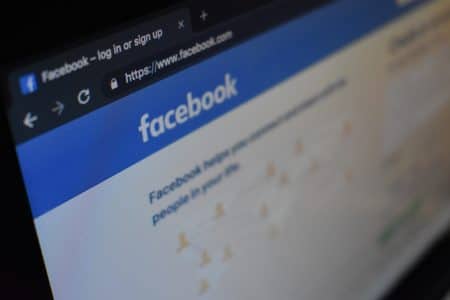5 Powerful AI Trends to Watch for in 2017 - Dispatch Weekly
January 17, 2017 - Reading time: 8 minutes

Artificial Intelligence, or AI, may bring to mind Ex Machina, The Matrix and the Terminator movies. But in reality, AI and robotics are reshaping our lives, prompting ethical, legal and societal debates. Today AI is seen all around us, from Apple’s Siri, Amazon’s Alexa and self-driving cars powered by Google, Lyft and Ford. Here are 7 powerful AI trends we can expect in 2017.
#1 Connected Living and Smart Homes
Apple Home on iPhone and Google Home, an extension of Amazon Echo, automated home devices resulting in a connected ecosystem. Gadgets such as the Apple iOS 10 HomeKit App helps control the home with a click of a button, with over 70 manufacturers carrying the ‘Works with Apple HomeKit’ mark.
These devices can be controlled using Siri from a single app, operating everything from, doors, blinds and lights. The benefit of having different components of the house working together is that it helps organize the living experience, particularly for busy people, needing to set temperatures and conditions before returning home.
The popularity of Alexa, a voice-driven personal assistant shows there’s a real demand for AI technology. A press release examining Amazon’s holiday performance notes that the Amazon Echo family of devices- including the Echo Dot, Echo Tap, Fire TV Stick, Fire Tablet, and Amazon Echo- grew more than 9 times versus the 2015 holiday season.
#2 Robots and AI Will Overtake Automated Low Skilled Jobs

In a 2014 report, Deloitte found more than a third of British jobs could be in danger over the coming decades due to new technologies, robotics and automation systems.
“35 percent of existing roles could be put at risk because of these new innovations”
This could also see digital, management and creative skills take precedence over repetitive processing, clerical and support services.
More encouragingly, 40 percent of UK jobs faced low risk or no risk at all, whereas office and administrative support, sales and services and transport sectors were most likely to be put in jeopardy over the next 20 years.
The report signalled a warning for those earning under £30,000 a year as being five times more likely to see their roles replaced, in comparison to high-skilled jobs, paying more than £100,000.
Deloitte’s London senior partner, Angus Knowles-Cutler said, “Unless these changes coming in the next two decades are fully understood and anticipated by businesses, policy makers and educators, there will be a risk of avoidable unemployment and under-employment.”
“A widening gap between ‘haves’ and ‘have-nots’ is also a risk as lower skill jobs continue to disappear.”
#3 Cognitive Technology Drives Self-Learning
DeepMind, owned by Google, created a machine that beat one of the world’s greatest Go players. The team of over 250 research scientists are now working on an artificial hippocampus, the area of the brain accountable for creativity and memory.
DeepMind aims to achieve, “meaningful real-world breakthroughs,” by “learning how to use vastly less energy in Google’s data centres” […]”collaborating with clinicians in the UK’s National Health Service on delivering better care for conditions that affect millions of people worldwide.”
By developing cognitive technology, this has helped self-learning abilities, which are more intuitive. An example is DeepMind’s WaveNet which uses different parts of human speech, modelling them on waveforms, examining the way they sound. These mimic human voices with variable tones rather than monotone computer voices.
The collaboration between Google’s DeepMind, Amazon, Facebook, Microsoft and IBM has allowed the companies to share knowledge on AI, examining the evolution of AI and how it can deal with societal needs in the near future.
#4 Security Threats and Online Data

Recent news such as Russia’s hacking scandal regarding the US presidential election has highlighted the need to protect online data collected through devices.
Cyber security is such a challenge that governments, individuals and organizations have become victims of such attacks leading to researchers clamouring to try and prevent such actions.
One such example is MIT, whose researchers have developed a new AI based cyber security platform, A12, which predicts and detects threats, stopping 85 percent of cyber attacks.
According to a Symantec report, in 2015, nine mega-breaches and a reported number of exposed identities jumped to 429 million.
In the same year, more companies chose to not reveal the full extent of their data breached but a conservative estimate of unreported breaches pushes the number of records lost to more than half a billion.
#5 Elon Musk Says AI is the Biggest Threat to Human Race

Elon Musk called AI, “our greatest existential threat” at the AeroAstro Centennial Symposium.
He admitted that his investment in the Artificial Intelligence firm, DeepMind, was to:
“keep an eye on what’s going on with artificial intelligence. I think there is potentially a dangerous outcome there.”
Stephen Hawking reiterated Musk’s concerns in an op-ed in The Independent, 2014, where Hawking wrote, “AI would be the biggest event in human history,” with dangers due to “world militaries (who) are considering autonomous-weapon systems that can choose and eliminate targets.”
The famous cosmologist said AI would be the “best or worst thing” for humanity at the Intelligence Center Launch in Cambridge, UK, saying “it will bring great disruption to our economy, and in the future AI could develop a will of its own that is in conflict with ours.”
Is AI largely beneficial to society, or does it pose more of a threat to the human race?

DW Staff
David Lintott is the Editor-in-Chief, leading our team of talented freelance journalists. He specializes in covering culture, sport, and society. Originally from the decaying seaside town of Eastbourne, he attributes his insightful world-weariness to his roots in this unique setting.




